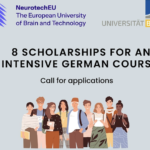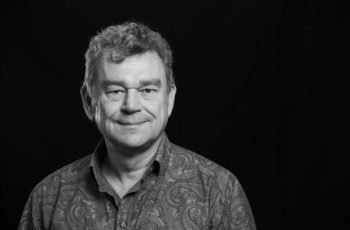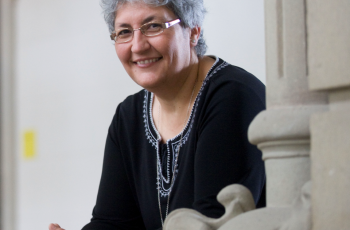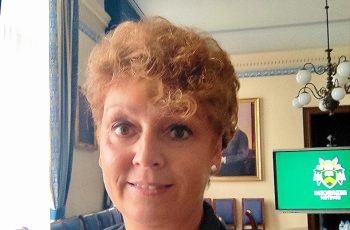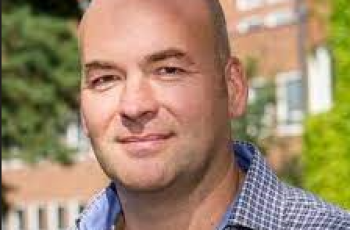In the faces of NeurotechEU series, several people in the NeurotechEU alliance are interviewed to learn about their experiences and insights.
In this engaging interview, Inmaculada Blaya Salvador, Director of the Service of International Relations, Development Cooperation, and Volunteerism at Miguel Hernández University in Spain, provides valuable insights into the NeurotechEU project’s potential and the collaborative spirit driving its sucess.

Working with diverse teams from different countries and universities can be challenging, but it's also what makes our collaboration successful.
Inmaculada Blaya Salvador
What excites you the most about the NeurotechEU EU project?
I’m incredibly fascinated by this field because it addresses present and future challenges, especially in healthcare. Having Europe’s top experts working together to find solutions is a significant achievement.
NeurotechEU goes beyond being just a project; it’s a network of alliances that opens up tremendous opportunities. It enriches the educational experiences of our students, whether they’re pursuing Master’s or Ph.D. degrees, and facilitates valuable exchanges among researchers and professors conducting cutting-edge research.
What have you enjoyed most about the project so far?
Working with diverse teams from different countries and universities can be challenging, but it’s also what makes our collaboration successful. Achieving our results and seeing the progress we’ve made in the past four years is incredibly rewarding. It’s like embarking on a journey to create something entirely new while investing our time, efforts, and best practices with an open-minded approach.
We initially started with a framework, mission, and vision, but we’ve had to build it from scratch, defining our path together. Each milestone reached is a step toward our future goals. We aspire to become a recognized model in neurotech, neuroscience, and technology, the reference University at this field.
You are working with students. How do you think the project benefits students, and what excites them the most?
The project offers students valuable experiences like attending summer courses, interacting with various techniques and methods, and building a network with peers from different universities.
This network has the potential to amplify our project’s impact, not only within our alliances but also in society at large. Our mission is to transform society, and while it’s an ambitious goal, it’s achievable. Students who seize these opportunities can benefit significantly from them.
How can the project stimulate out-of-the-box thinking and foster creativity to generate innovative solutions for various challenges?
We’re actively blending diverse disciplines, a direction we plan to emphasize even more in the future. Professionals collaborating with various fields unlock unique solutions for common problems. This project promotes interdisciplinary thinking, benefiting both researchers and students. While I come from a management background, I appreciate the multitude of perspectives from different disciplines involved in transforming neuroscience. Learning often occurs organically by observing other universities’ methods. This presents an excellent opportunity for creative thinking and pushing beyond traditional boundaries. Our project consistently encourages this question: “How can we approach things differently to foster innovation?”
Could you share a message with colleagues in similar positions at other NeurotechEU universities? What would it be?
Colleagues in similar positions share a common vision for such projects. It’s not just about boosting international rates; it’s a chance to transform our universities from the inside out. This project offers us an opportunity for innovation, both internally and externally.
We’ve shown adaptability and resilience in our field, even during the challenges of the pandemic. Adapting to changing circumstances and working across cultures and disciplines is essential. To sum it up, I wouldn’t necessarily provide advice; I advocate for continuing our current approach and efforts.
If you had the opportunity to interview someone from another NeurotechEU university, who would it be, and what questions would you ask?
I’m always interested in learning from researchers about how they approach health issues and their progress in this field. Additionally, I’d like to learn from colleagues in similar positions about how they manage their responsibilities and the successful mobility activities they’ve implemented to involve more people in the project. These insights could benefit our collaborative efforts.
By: Krisztina Csiba from the University of Debrecen

